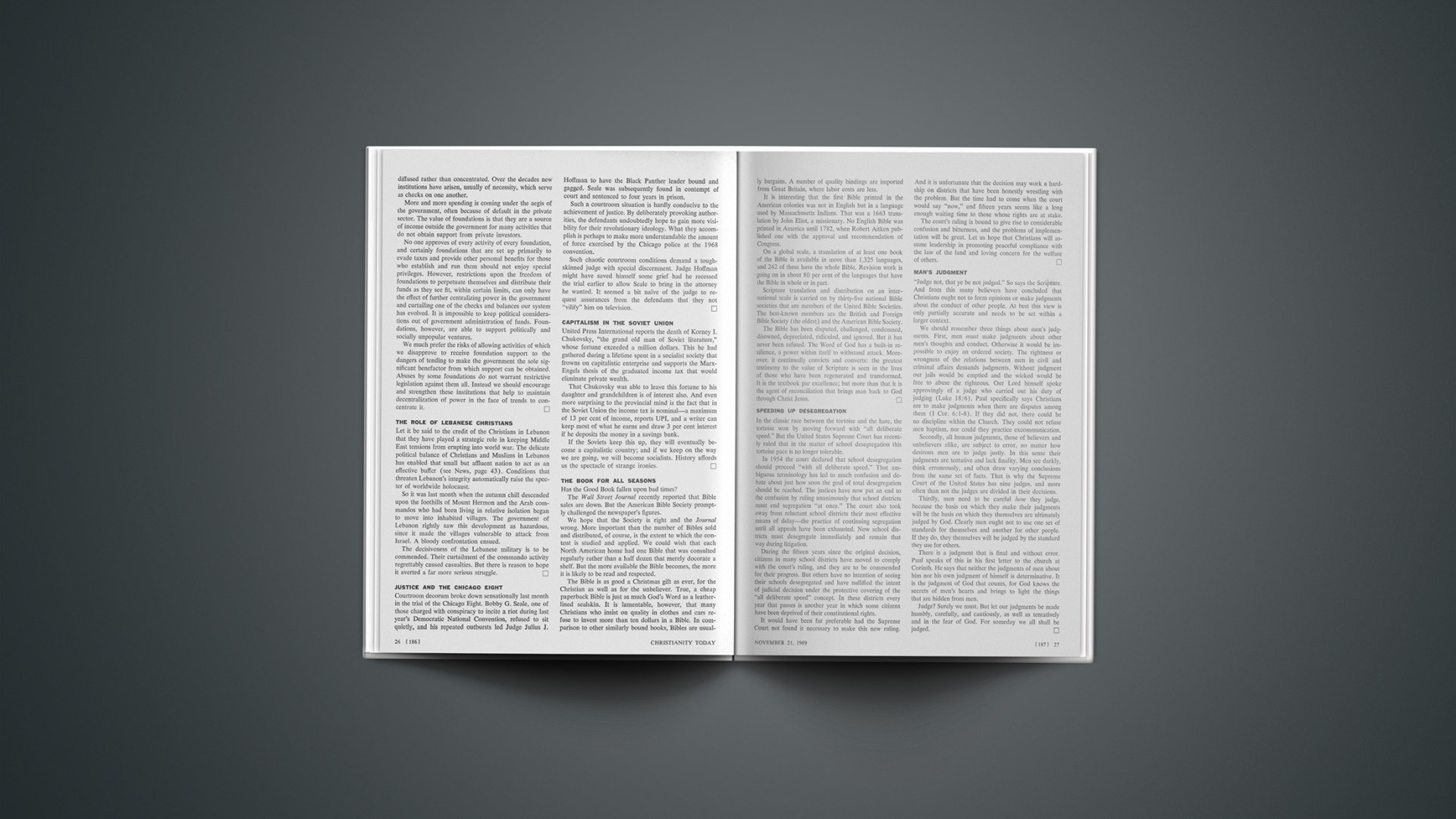Courtroom decorum broke down sensationally last month in the trial of the Chicago Eight. Bobby G. Seale, one of those charged with conspiracy to incite a riot during last year’s Democratic National Convention, refused to sit quietly, and his repeated outbursts led Judge Julius J. Hoffman to have the Black Panther leader bound and gagged. Seale was subsequently found in contempt of court and sentenced to four years in prison.
Such a courtroom situation is hardly conducive to the achievement of justice. By deliberately provoking authorities, the defendants undoubtedly hope to gain more visibility for their revolutionary ideology. What they accomplish is perhaps to make more understandable the amount of force exercised by the Chicago police at the 1968 convention.
Such chaotic courtroom conditions demand a tough-skinned judge with special discernment. Judge Hoffman might have saved himself some grief had he recessed the trial earlier to allow Seale to bring in the attorney he wanted. It seemed a bit naïve of the judge to request assurances from the defendants that they not “vilify” him on television.










